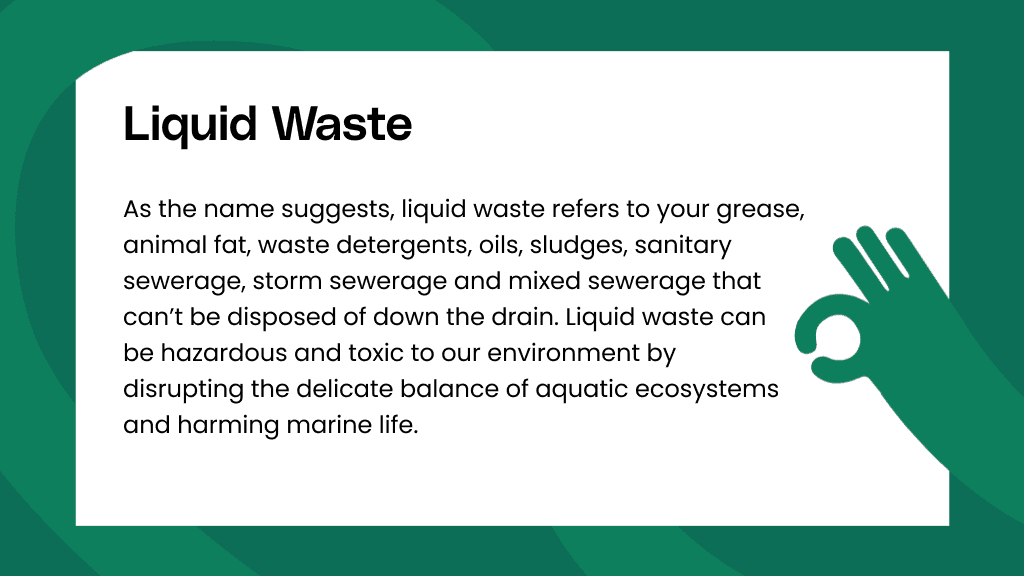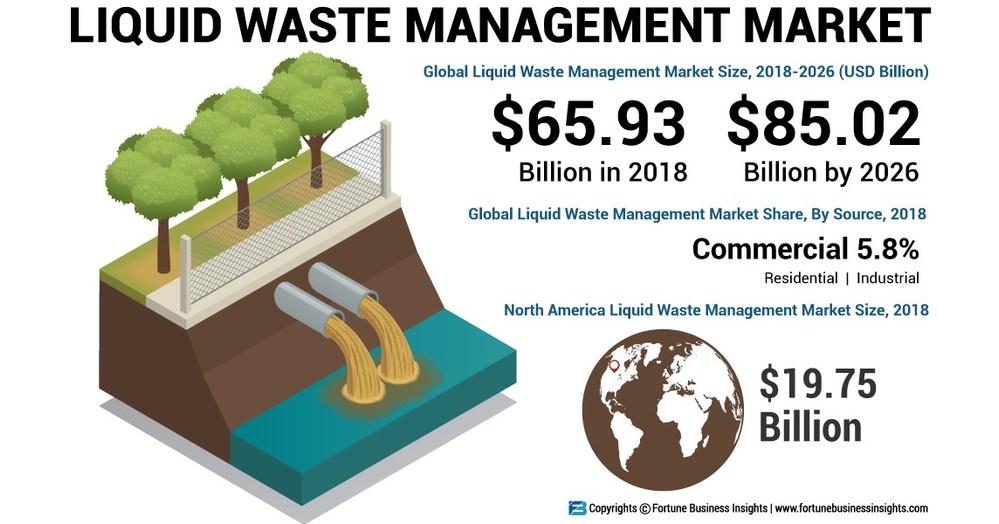Some Known Details About Reclaim Waste
Some Known Details About Reclaim Waste
Blog Article
Little Known Facts About Reclaim Waste.
Table of ContentsReclaim Waste Things To Know Before You Get ThisThe 4-Minute Rule for Reclaim WasteWhat Does Reclaim Waste Mean?Reclaim Waste Fundamentals ExplainedThe Greatest Guide To Reclaim Waste
Explore the kinds, events, and types of fluid waste. Domestic sewer waste describes the waste and products from a property septic system. This kind of waste is produced by human beings in houses, colleges, and various other structures. This only includes sewage-disposal tanks that have a drainpipe area. The correct monitoring and disposal of residential sewage waste call for fluid waste to be moved to a sewer therapy plant where the proper approaches and equipment are applied to cleanse and deal with waste.
Industrial waste frequently includes prospective risks, such as flammable materials or a combination of liquid and solid waste items, and requires a much more innovative and thorough disposal process. The disposal of business waste generally entails the purification of waste before transport to make sure safe and correct disposal. Industrial waste is produced from by-products and drainage of commercial procedures and production.
This kind of waste can not utilize the very same sewer monitoring transportation or processes as septic or commercial liquids. The hazardous waste monitoring procedure requires the assessment and screening of liquid waste prior to it goes through the disposal procedure (liquid waste removal). Drainage waste is the fluid waste that comes from overflow and excess stormwater in very populated areas or cities
Overflow waste can trigger contamination and flooding if not taken care of properly. Ensuring proper waste monitoring can stop calamities and decrease ecological injury.
The Basic Principles Of Reclaim Waste
Contact PROS Solutions today to discover our waste management and disposal solutions and the proper ways to care for the liquid waste you create.
(https://reclaimwaste.godaddysites.com/f/efficient-liquid-waste-disposal-removal-melbourne)This supposed 'wastewater' is not just a crucial resource but, after treatment, will certainly be released to our land, waterways or the ocean. Utilized water from toilets, showers, bathrooms, cooking area sinks, washings and industrial processes is recognized as wastewater.

water used to cool equipment or tidy plant and devices). Stormwater, a kind of wastewater, is runoff that flows from farming and urban locations such as roof coverings, parks, gardens, roadways, paths and seamless gutters right into stormwater drains, after rain. Stormwater moves untreated straight to neighborhood creeks or rivers, at some point reaching the ocean.
Reclaim Waste for Beginners
In Queensland, many wastewater is dealt with at sewage therapy plants. Wastewater is moved from residential or commercial websites via a system of drains and pump terminals, called sewage reticulation, to a sewer treatment plant. Regional federal governments develop, preserve and operate most sewer treatment plants. Operators are licensed under the Environmental Security Act 1994 to discharge cured wastewater at an appropriate environmental requirement right into waterways.
The Division of Natural Resources advises city governments about managing, operating and maintaining sewage systems and therapy plants. In unsewered locations, neighborhood federal governments might require homeowners to mount individual or household sewage treatment systems to deal with domestic wastewater from bathrooms, kitchens, restrooms and laundries. The Division of Natural Resources authorises making use of family systems when they are confirmed to be efficient.
In some brand-new subdivisions, therapy of some stormwater to eliminate clutter, sand and gravel has started making use of gross toxin traps. Wastewater therapy takes place in 4 stages: Gets rid of solid issue.
Utilizes little living organisms recognizes as micro-organisms to damage down and get rid of continuing to be dissolved wastes and fine fragments. Micro-organisms and wastes are integrated in the sludge.
Reclaim Waste Can Be Fun For Everyone
Nutrient removal is not offered whatsoever sewage therapy plants since it needs expensive specialized tools. It is becoming much more common in Queensland. Clear fluid effluent created great post to read after treatment may still consist of disease-causing micro-organisms. If this effluent is released into waterways such as rivers or the sea, the micro-organisms will at some point die out.

This normally implies wastewater has to be dealt with or impurities gotten rid of before it can be discharged to waterways. Many wastewater moves right into the sewage system. Under the Act, city governments carry out authorizations and licences for eco relevant activities (Periods) including wastewater launches that may have a regional influence. The department administers authorizations and licences to Ages including wastewater launches that could have a local or statewide influence.
A Biased View of Reclaim Waste
Monitoring gives accurate information about water top quality and can verify that permit problems are being met. The info obtained with surveillance gives the basis for making water top quality decisions.
Report this page